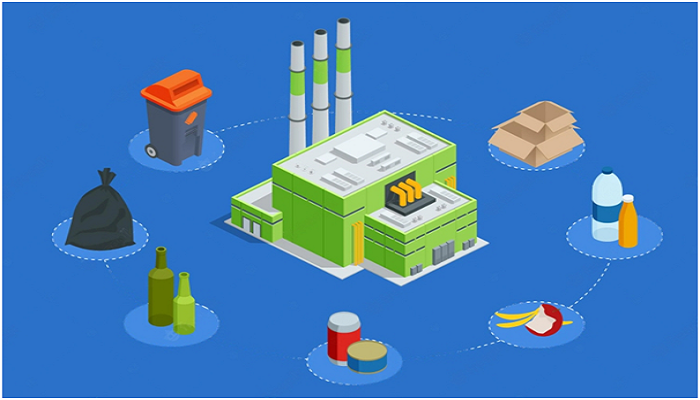Waste Management
The worldwide waste generation is increasing every year by a
volume of 4 billion tones. You can see the statics from 2016 -2020.
The recent rise in consumer culture and urban population
growth, neither of which is expected to slow down anytime soon, is directly
responsible for the sudden upsurge.
Communities all over the world are turning to futuristic
waste management technologies and solutions to lessen the burden this is
placing on the environment and waste collection systems. There is a steady rise
in use of technology in waste management over the years.
In this article, I’ll be talking about the role of technology in waste management.
What is Smart Waste Management?
Any method that makes use of technology to increase the
effectiveness, affordability, and environmental friendliness of trash
collection is referred to as smart waste management.

To improve waste collection and encourage future innovation,
the majority of these systems are outfitted with the Internet of Things (IoT),
a monitoring device that gathers and tracks real-time data.
Continue reading to find out how intelligent waste
management systems function or jump to the infographic below to find out how
companies may use this cutting-edge technology.
Technologies Used Widely In The Waste Industry
The Technologies That Are Used Widely In The Waste Industry
Are:
. Waste Level Sensors
Daily rubbish collection services are used by companies and
also homes all throughout the country to rid their trash. Weekly services have
been offered for a while, but they are not always the greatest option.
Municipalities and Companies can establish waste-level
sensors in dumpsters or bins of any size to help lessen unnecessary journeys to
and from landfills.
These devices collect and store info on levels of fills,
which in turn enables agencies in the collection to foresee when dumpsters
should be emptied.
When public containers overflow, it also prevents the area
from becoming contaminated.
Read Also This - Why E-Invitations Are The Perfect Choice For Your Next
Celebration.
. Smart Waste Bins
From time to time, people disregard dividing their waste
into the proper trash or recycling bins when left to their own devices.
In order to avoid incorrect recycling sorting, the Polish
company Bin-e developed a smart trash can that automatically sorts recyclables
into various compartments using artificial intelligence-based object
identification.
The waste is compressed after dividing and sorting, and
the system keeps track of how filled each bin is.
Intelligent trash cans remove human mistakes from the
initial sorting procedure, speeding up and simplifying the material processing
for recycling facilities.
This can greatly increase worker productivity and cut waste
management expenditures by as much as eighty percent.
. Pneumatic Waste Pipes
The need for waste management strategies
that can manage rising volumes of rubbish that grow along with the population
growth of the urban areas.
Some cities are resolving this issue by
installing pneumatic trash cans that connect to a system of underground pipes.
Garbage is transported to a waste
collecting facility through the pipes, where it is either divided and sorted or
transported away.
Read Also This - How Is Digital Transformation Facilitating Healthcare
Management?
. Solar-powered trash compactor
In an effort to increase collection
effectiveness and reduce trips to and from the dump, the company Ecube Labs
designed a solar-powered waste compactor with a capacity up to five times more
than ordinary trash bins.
Along with gathering and transmitting
data on fill and collection times to aid in facilitating the collection
process, these machines compress trash as it gets to maximize bin capacity.
. E-waste Kiosks
Inappropriate disposal of electronic waste can negatively
affect people and the environment.
Fortunately, a lot of businesses and organizations have
begun e-waste recycling programs that will accept
your old electronics and even pay you back.
They take broken tablets and phones, also MP3 players in
whatever condition, and they make sure that they are properly recycled even
though they won't always provide money for them.
FAQs
Q: What is Waste Management technology?
A: Smart waste management
refers to any system that uses technology to make trash collection more
efficient, cost-effective, and environmentally friendly.
Q: What is the best method of waste management?
A: Recycling and composting are a couple of
the best methods of waste management.
Q: What are the three types of waste management?
A: Each of us needs to contribute in order
to keep as much waste out of the landfill as possible.
Waste Management important ways are to
Reduce, Reuse, and Recycle.
All In All
The waste management systems which are traditional are not
well-equipped to handle the additional trash produced by increasing populations
Communities must embrace smart waste management technology that boosts
productivity, cut collection costs, and divert more garbage from landfills in
order to close the gap.
Thank you for reading up till here.










